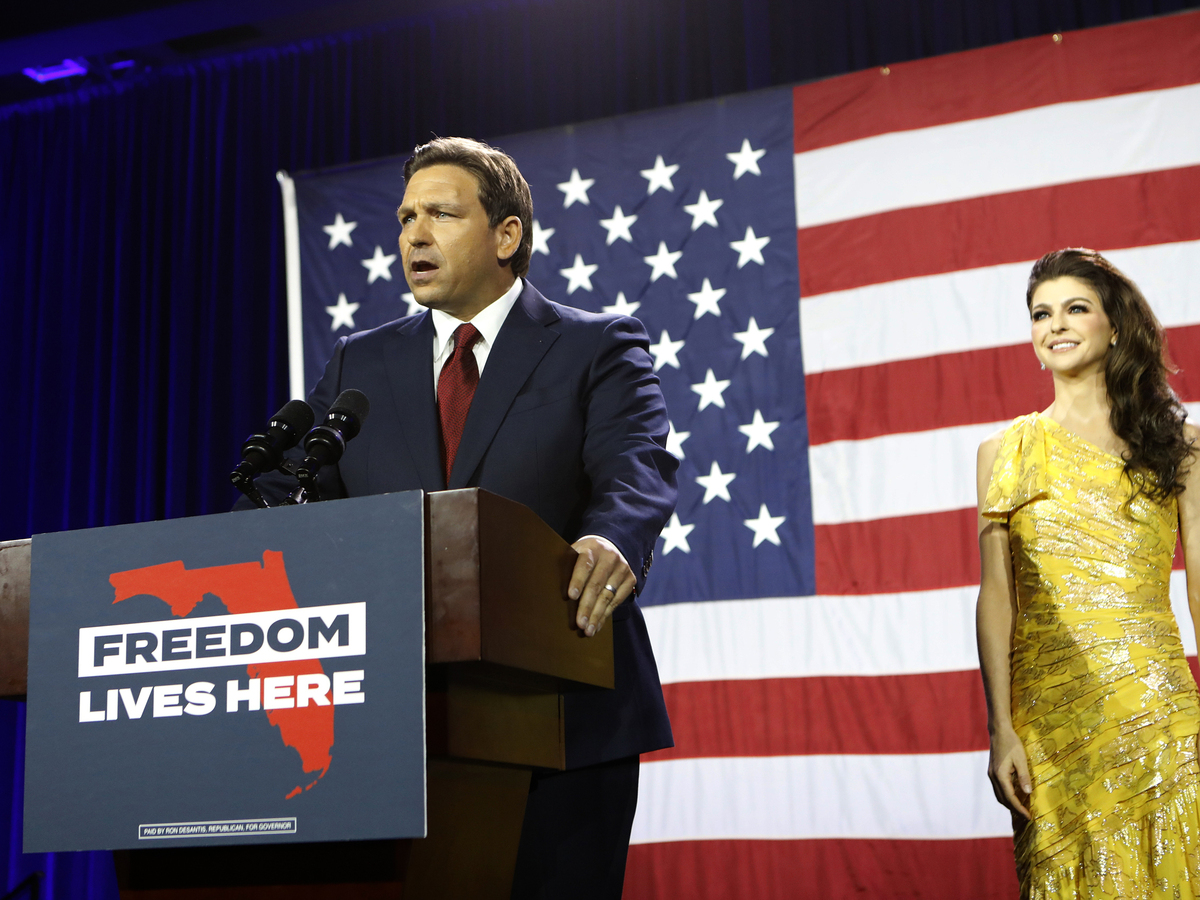
Florida Gov. Ron DeSantis gives a victory speech after winning re-election in 2022. Octavio Jones/Getty Images hide caption

Florida Gov. Ron DeSantis gives a victory speech after winning re-election in 2022.
Octavio Jones/Getty ImagesWhen it comes to American politics, Florida regularly finds its way to the center of the conversation. Often important, if not pivotal in presidential elections, Florida is home to former President Trump and his strongest opponent in the Republican presidential primary for 2024, Governor Ron DeSantis. As he campaigns for the nomination, Gov. DeSantis has taken center stage in some of the most contentious battles of the culture war, those around trans rights, book censorship and immigration.
But just how did the Sunshine State end up the center of the political universe? NPR's Political Correspondent Kelsey Snell and National Correspondent Greg Allen explain.

 Live Radio
Live Radio